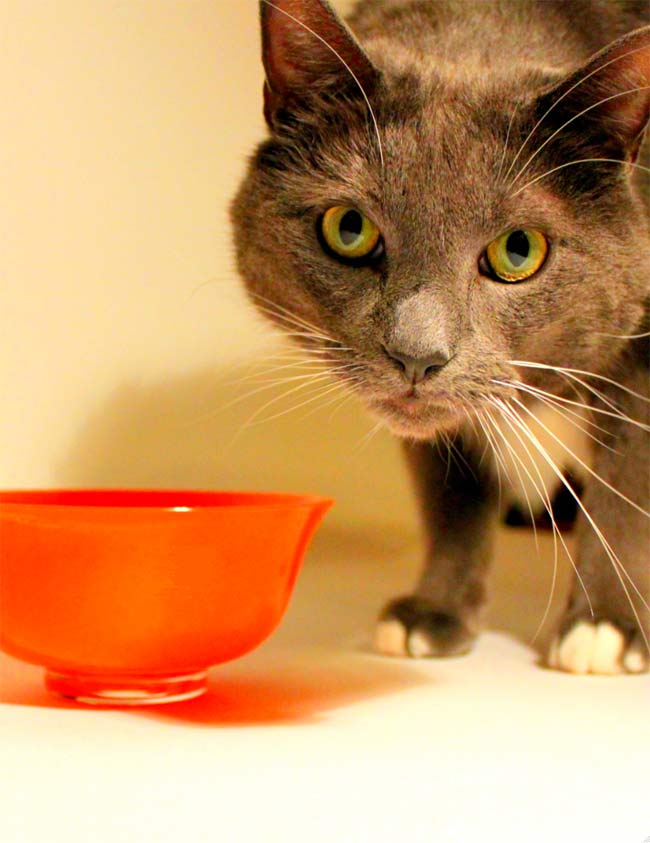Healthy Cats Act Sick When Upset

They don't talk, but when cats are upset about a change in their environment they let you know by acting sick – refusing to eat and vomiting excessively, even if they're healthy, a new study finds.
"For veterinary clinicians, when you have a cat that's not eating, is not using the litter box or has stuff coming up out of its mouth, the quality of the environment is another cause that needs to be addressed in coming up with a diagnosis," said study researcher Tony Buffington, a professor of veterinary clinical sciences at Ohio State University.
When cats in the study experienced "unusual external events," such as a change in the caretaker or feeding schedule, the healthy ones were just as likely as the chronically ones to exhibit sickness behaviors. [Related: Cats Stress Out, Too]
Playing sick
The study used two groups of cats – a set of healthy cats and a set of cats with feline interstitial cystitis (IC), a chronic illness characterized by recurring discomfort or pain in the bladder. Both groups demonstrated the same number of sickness behaviors in response to unusual events, and in both groups, the risk of acting sick over disrupted routines tripled from when everything stayed the same.
The research project hadn't begun as a study of cats' tendency to exhibit sickness behaviors. Judi Stella, a doctoral candidate in veterinary preventive medicine, was the primary caretaker of 20 cats with IC and of healthy cats housed in Ohio State's Veterinary Medical Center. Based on previous work about the benefits of environmental enrichment for cats that stay indoors, Stella spent months setting up a standardized feeding, play and cleaning schedule that seemed the least stressful for all of the cats.
Eventually she noticed the cats with the chronic illness looked better: Their coats were shinier, their eyes were clearer, and no cat had missed the litter box or vomited for two weeks.
Get the world’s most fascinating discoveries delivered straight to your inbox.
Buffington said, "What we found, in other clinical studies and with this study, is that by enriching the environment, you can reduce IC cats' symptom burden by about 75 or 80 percent."
Stressing out cats
After the environment was stable for all of the cats in this enriched environment, Stella observed them for 77 weeks, tracking any changes in behavior.
During this period, the researchers made various changes to the cats' environment, including discontinuation of contact with Stella, a combination of husbandry schedule changes (food removal, and withdrawal of playtime and music), a three-hour delay in feeding time and a dramatic change in caretaker personnel.
During control weeks, when the routine was unaltered, the healthy cats exhibited an average of 0.4 sickness behaviors, and the cats with IC exhibited 0.7 sickness behaviors – virtually no difference between the two. Similarly, during weeks containing "unusual external events," the number of sick behaviors increased to 1.9 for healthy cats and 2.0 for cats with interstitial cystitis. Overall, this translated to a 3.2-fold increase in the risk for sickness behaviors by all cats when their routines were disrupted.
The study was published in the Jan. 1 issue of the Journal of the American Veterinary Medical Association.
You can follow LiveScience on Twitter @livescience.
 Live Science Plus
Live Science Plus






